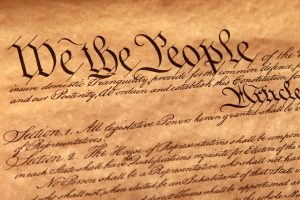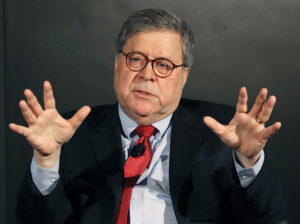Ed. note: This is the latest installment in a series of posts on motherhood in the legal profession, in partnership with our friends at MothersEsquire. Welcome Elise Elam to our pages.
I have a tattoo of a phoenix with its head held high, wings outstretched as if taking flight. It’s pretty cliché — okay, a lot cliché — but clichés resonate with us because they evoke imagery to which we can relate. The “phoenix rising from its ashes” image evokes hope, perseverance, and resilience. The phoenix was not my first tattoo, nor my last, but it was the one I spent the most time designing — trying to get it just right. Despite its being cliché, I sometimes feel like a phoenix: rising above after a challenge or ordeal only to be stronger and brighter as a result.
From a surprise pregnancy at 17 during my parents’ divorce, to graduating from law school during an economically challenging time (with the student debt to prove it), to a difficult pregnancy, emergency C-section and newborn preemie in the NICU, to finding myself laid off from the job I thought I was going to have forever — I am no stranger to adversity.
After each of these tough experiences, I found myself stronger and more resilient than before. It seems — and here comes another cliché — that each of these hard things prepared me for the next hard thing. In December 2018, I realized I had an opportunity to reinvent myself professionally, to pivot my career into something — hopefully — that would provide more stability.
As it happens, my husband had just started grad school — he is a disenchanted chemist, also hoping to pivot into something else. One day, he suggested I go back to school, too. I thought, “Obviously, this man is unhinged.” And then, “Or … maybe there is something to what he is saying.” My husband is no dummy — he didn’t just suggest it on a whim or out of the blue. He had done pretty extensive research on the job market, including both legal and legal-adjacent jobs. He researched grad school programs and certifications and laid it all out there. My husband convinced me to do something I thought I would never do: go back to school.
I knew I wanted to find a career — not just a job. I knew I wanted something challenging and interesting. I also knew I wanted to be in a role where I could grow professionally and at an organization that supported me. Of course, I also wanted a pay increase, but that was last on my list of priorities. Based on all of these things, I was surprised to realize that my “dream” job was now “cybersecurity incident response attorney.” The great thing about this dream is that there are many legal or legal-adjacent jobs related to cybersecurity — such as privacy attorney and privacy program manager — that would be great stepping stones on (or alternatives to) the path to my ultimate goal. However, I also knew that I couldn’t just start asking people to hire me — a psych major practicing workers compensation defense — for my dream job without having the credentials to prove my interest in this field. I talked over my plans with many people, including an attorney I looked up to who had pivoted from litigation to cyber insurance. She also encouraged my plan to go back to school.
So, 2019 was a whirlwind year for me. I was working — sometimes part time, sometimes full time or more, depending on the amount I was able to cobble together — and going to grad school full time. In May, my toddler was hospitalized for several days with RSV (a respiratory infection) and was on supplemental oxygen and IV fluids (he’s fine now). In June and July, my grandfather became ill, and we knew it was only a matter of time before he would say goodbye to us forever. A World War II Navy vet, his greatest fear at the end of his life was dying alone in a nursing home. Although I was incredibly busy, I was working and going to school remotely. As a result, I was able to grant my grandfather his last wishes: for the last five weeks of his life, I cared for my grandfather during the day while my dad was working out of the house and couldn’t be with him.
In December, I graduated from Virginia Tech with a Master’s in Information Technology (my bachelor’s is in psychology). Throughout the year, I studied for and obtained three privacy certifications through the IAPP (CIPP/US, CIPM, and CIPT). During the entire program but especially during that last month, I barely knew what sleep was, and I drank a worrisome amount of coffee. There was one particular day where I was attempting to juggle all of my competing responsibilities — work and school deadlines, sick kids — all with a 102-degree fever. I am not exaggerating when I say I seriously considered divorcing my husband that day.
Fast forward to March 2020. Schools and businesses were starting to close because of the pandemic. And I had just started a new job in a new practice area — my “dream” job. My story is not a blueprint. It is not a step-by-step guide on how to achieve your professional goals. Instead, my story is meant to give you hope. I am not going to lie — my professional “rising from the ashes” was not easy. It took a lot of work and effort, not to mention additional costs for the certifications and tuition. It also required belief in myself and in my dream. Of course, as in everything else I’ve ever achieved, it took the support of many people, family, friends, mentors, and colleagues. And it wasn’t immediate — it took time to build my credentials and find a position. But I am proof positive that if you put your mind — and your grit — to it, you can achieve your goals. Another cliché — but a true one, nonetheless.
So, if you find yourself at a professional crossroads — unhappy with your practice area, your workload, your hours; facing a lay-off or wanting to increase your salary; or simply just needing a change to reinvigorate your passion for being a lawyer — you can reinvent yourself just like I did.
 Elise Elam is an associate at BakerHostetler in Cincinnati, Ohio. As part of the Digital Risk Advisory and Cybersecurity practice group, she works closely with clients across various industries to prepare for and respond to data security incidents. Elise enjoys staying connected to her community, serving on the Ambassador Board of a local children’s nonprofit – the organization through which she was adopted as an infant – and is the President-Elect of her high school’s Alumni Association Board. Outside of work, Elise loves to run, albeit slowly, and can always be found with a book and a cup of coffee. She is the proud (and tired) mother of a teenager and two toddlers.
Elise Elam is an associate at BakerHostetler in Cincinnati, Ohio. As part of the Digital Risk Advisory and Cybersecurity practice group, she works closely with clients across various industries to prepare for and respond to data security incidents. Elise enjoys staying connected to her community, serving on the Ambassador Board of a local children’s nonprofit – the organization through which she was adopted as an infant – and is the President-Elect of her high school’s Alumni Association Board. Outside of work, Elise loves to run, albeit slowly, and can always be found with a book and a cup of coffee. She is the proud (and tired) mother of a teenager and two toddlers.




 Jordan Rothman is a partner of
Jordan Rothman is a partner of 


 Elise Elam is an associate at
Elise Elam is an associate at 


 Olga V. Mack is the CEO of
Olga V. Mack is the CEO of 






 Kathryn Rubino is a Senior Editor at Above the Law, and host of
Kathryn Rubino is a Senior Editor at Above the Law, and host of